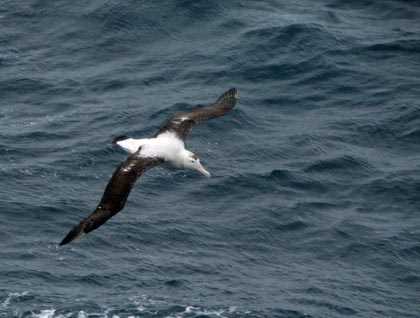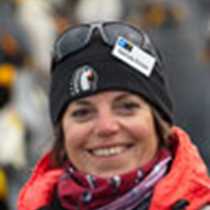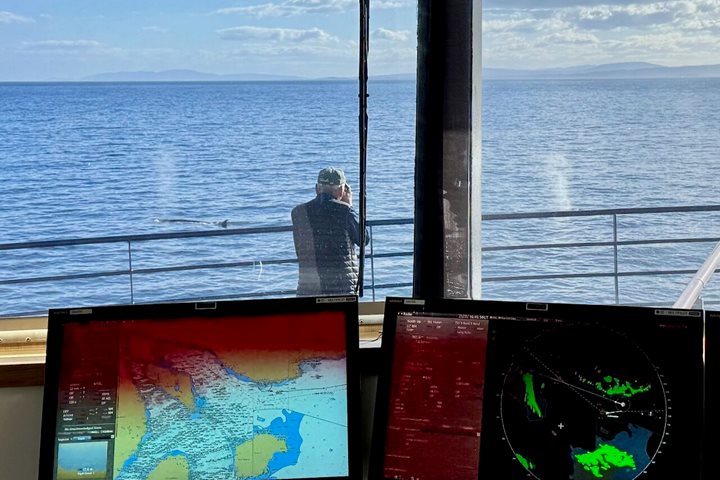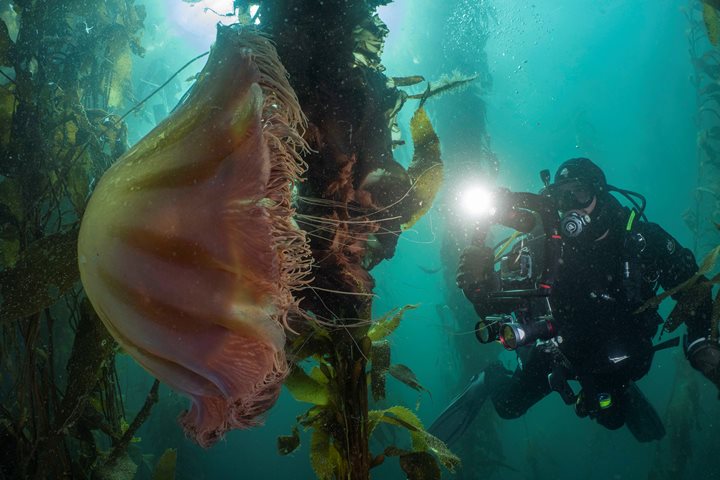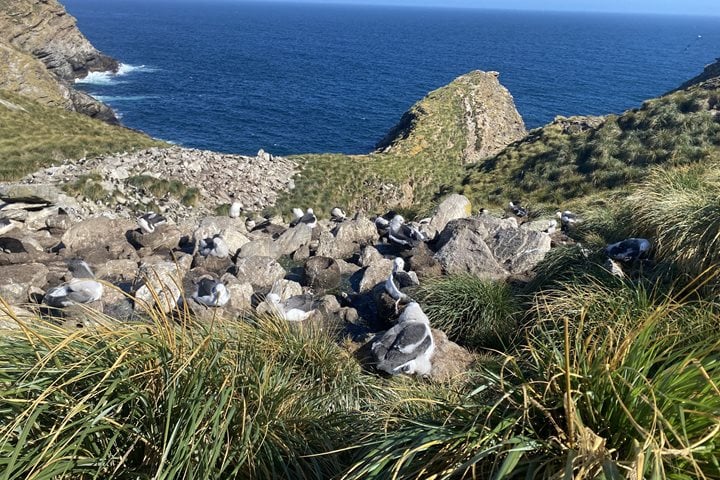We are sailing in an east-southeast direction towards South Georgia, entering into the zone known as the Polar Front. This is the northern boundary of the Antarctic Circumpolar Current, which brings north the cold and nutrient-rich waters of the Antarctic. South Georgia is right in the path of this current driven by the prevailing westerly winds and the topography of the seafloor. For those of us watching the bridge’s navigation equipment, the most significant change is the marked drop in the sea surface temperature. Suddenly, the ocean surface is two degrees colder, the gray skies had turned into a dense fog that comes and goes as warm air meets cold air. Our eyes are incapable of seeing too far, but the mist does not seem to affect the magnificent fly of the wandering albatross.
Politically, we have also entered the 200 mile nautical zone that is managed by the government of South Georgia. Although this maritime zone has more implications for commercial fishing fleets than for our ship, it is giving us the bragging rights to say ‘we are’ (geopolitically) in South Georgia. It is then no surprise to see many orange parkas who now sporting newly acquired and proudly displaying South Georgia patches.
The day is full of presentations from our experienced staff, who is passionate and knowledgeable about this remote part of the world. Everyone is keen on sharing their expertise to make this voyage an exciting adventure. The more we learn on animal behaviour, weather and ocean currents and human history, the more we can appreciate the uniqueness of the land that lies ahead.
A day at sea is a day of preparation for our visit to South Georgia. To comply with the government regulations, all guests and staff who wish to go ashore have to attend a mandatory briefing and a decontamination of the equipment and gear. It may sound ominous, but it is a simple procedure that requires an antibacterial decontaminant solution, brushes, vacuum cleaners, experienced staff, personal responsibility, and plenty good sense of humor. The staff was eager to remove all traces of seeds and soil transported in the outer gear and packs that we wore ashore in the Falklands, as well as scrubbing vigorously pants and boots. Now that we have acknowledge the threats to the conservation of the natural ecology of the island, we are ready and thrilled to be so close. Only one more sleep…

